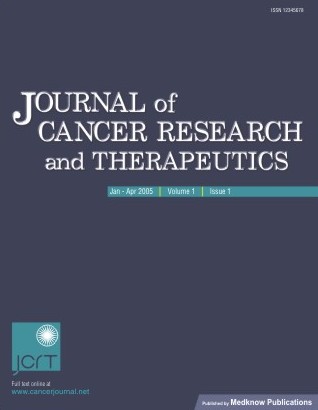
|
Journal of Cancer Research and Therapeutics
Medknow Publications on behalf of the Association of Radiation Oncologists of India (AROI)
ISSN: 0973-1482
EISSN: 0973-1482
Vol. 5, No. 4, 2009, pp. 312-314
|
 Bioline Code: cr09075
Bioline Code: cr09075
Full paper language: English
Document type: Case Report
Document available free of charge
|
|
|
Journal of Cancer Research and Therapeutics, Vol. 5, No. 4, 2009, pp. 312-314
| en |
Late-onset hepatic veno-occlusive disease post autologous peripheral stem cell transplantation successfully treated with oral defibrotide
Shah, Mithun S.; Jeevangi, Nandish Kumar S.; Joshi, Amit & Khattry, Navin
Abstract
Hepatic veno-occlusive disease (VOD) remains one of the commonest and most serious complications after myeloablative hematopoietic stem cell transplantation (HSCT). Clinical diagnosis of hepatic VOD is based on the finding of the triad of painful hepatomegaly, hyperbilirubinemia, and unexplained fluid retention occurring within 21 days of the transplant. However, the uncommon clinical entity of late-onset VOD can occur even beyond 20 days and should be considered in the differential diagnosis of any liver disease of more than 3 weeks′ duration.
While mild cases usually resolve spontaneously, severe VOD is associated with a grim prognosis. Defibrotide, a polydisperse mixture of single-stranded oligonucleotide with antithrombotic and fibrinolytic effects on microvascular endothelium, has emerged as an effective and safe therapy for patients with severe VOD. We describe a patient who presented 55 days post transplant with clinical features suggestive of VOD. Upon treatment with oral defibrotide, he showed complete resolution of the VOD.
Keywords
Hematopoietic stem cell transplantation, hepatic veno-occlusive disease, oral defibrotide
|
| |
© Copyright 2009 Journal of Cancer Research and Therapeutics.
Alternative site location: http://www.cancerjournal.net/
|
|
